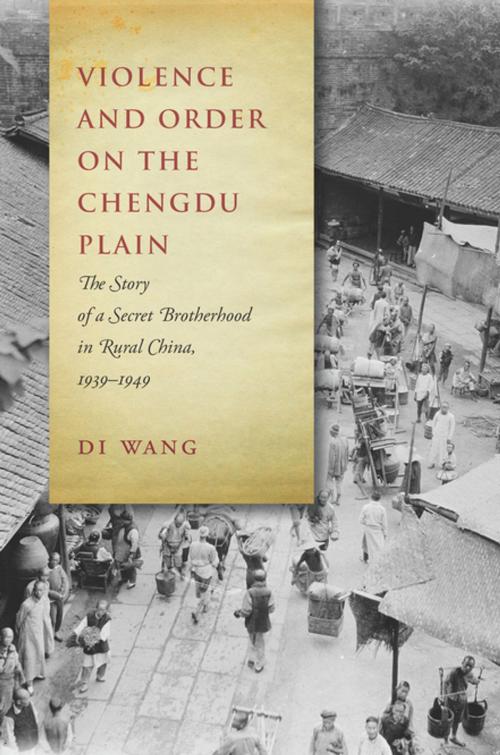Violence and Order on the Chengdu Plain
The Story of a Secret Brotherhood in Rural China, 1939-1949
Nonfiction, History, Asian, China| Author: | Di Wang | ISBN: | 9781503605336 |
| Publisher: | Stanford University Press | Publication: | March 27, 2018 |
| Imprint: | Stanford University Press | Language: | English |
| Author: | Di Wang |
| ISBN: | 9781503605336 |
| Publisher: | Stanford University Press |
| Publication: | March 27, 2018 |
| Imprint: | Stanford University Press |
| Language: | English |
In 1939, residents of a rural village near Chengdu watched as Lei Mingyuan, a member of a violent secret society known as the Gowned Brothers, executed his teenage daughter. Six years later, Shen Baoyuan, a sociology student at Yenching University, arrived in the town to conduct fieldwork on the society that once held sway over local matters. She got to know Lei Mingyuan and his family, recording many rare insights about the murder and the Gowned Brothers' inner workings.
Using the filicide as a starting point to examine the history, culture, and organization of the Gowned Brothers, Di Wang offers nuanced insights into the structures of local power in 1940s rural Sichuan. Moreover, he examines the influence of Western sociology and anthropology on the way intellectuals in the Republic of China perceived rural communities. By studying the complex relationship between the Gowned Brothers and the Chinese Communist Party, he offers a unique perspective on China's transition to socialism. In so doing, Wang persuasively connects a family in a rural community, with little overt influence on national destiny, to the movements and ideologies that helped shape contemporary China.
In 1939, residents of a rural village near Chengdu watched as Lei Mingyuan, a member of a violent secret society known as the Gowned Brothers, executed his teenage daughter. Six years later, Shen Baoyuan, a sociology student at Yenching University, arrived in the town to conduct fieldwork on the society that once held sway over local matters. She got to know Lei Mingyuan and his family, recording many rare insights about the murder and the Gowned Brothers' inner workings.
Using the filicide as a starting point to examine the history, culture, and organization of the Gowned Brothers, Di Wang offers nuanced insights into the structures of local power in 1940s rural Sichuan. Moreover, he examines the influence of Western sociology and anthropology on the way intellectuals in the Republic of China perceived rural communities. By studying the complex relationship between the Gowned Brothers and the Chinese Communist Party, he offers a unique perspective on China's transition to socialism. In so doing, Wang persuasively connects a family in a rural community, with little overt influence on national destiny, to the movements and ideologies that helped shape contemporary China.















